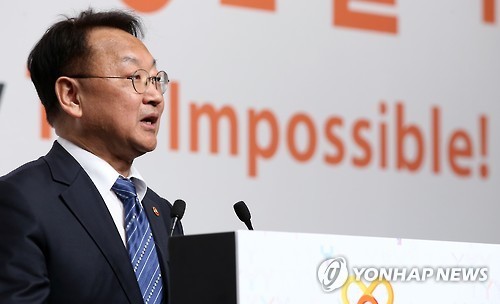Korea not likely to face massive job losses despite 4th industrial revolution
By KH디지털2Published : March 9, 2017 - 11:38
South Korea will not likely suffer from massive job losses with the advent of the fourth industrial revolution -- which will bring production automation and a streamlined governance system -- due to preemptive investments, a report said Thursday.
Finance Minister Yoo Il-ho said recently his government will pursue state-run R&D funds and deregulation to improve the country's economic and social systems and make them more suited for the fourth industrial revolution.

Seoul launched late last month the fourth-revolution strategy committee comprised of government officials, experts and business people. The committee will spearhead policy making on cloud computing, Internet of things, production automation, management and governance system, and the transformation of economy, society and education.
The report by the Korea Development Institute titled "The Effect of the Fourth Industrial Revolution on Employment" claimed South Korea will be the least affected among OECD member states by the rapid changes.
It cited South Korea's preemptive investment in automation at production facilities and the high level of education of employees.
Citing OECD statistics, the KDI report said there is a 70 percent probability that forthcoming automation will cause a loss of about 9 percent of jobs.
The comparable figure for South Korea was 6 percent, the lowest among OECD members, compared to more than 10 percent for Germany, Britain, Spain and Austria, according to the report.
South Korea has 531 industrial robots per 10,000 employees, the report said. Britain has 71 robots, Australia 86 and Switzerland 119.
"Technology change has always given birth to new technology and job openings to allow continued growth in the number of jobs," it said. "We can witness a pay raise and work-hour reduction if we grasp the job specifications needed by new technology and come up with a relevant education and training system." (Yonhap)










![[Hello India] Hyundai Motor vows to boost 'clean mobility' in India](http://res.heraldm.com/phpwas/restmb_idxmake.php?idx=644&simg=/content/image/2024/04/25/20240425050672_0.jpg&u=)







